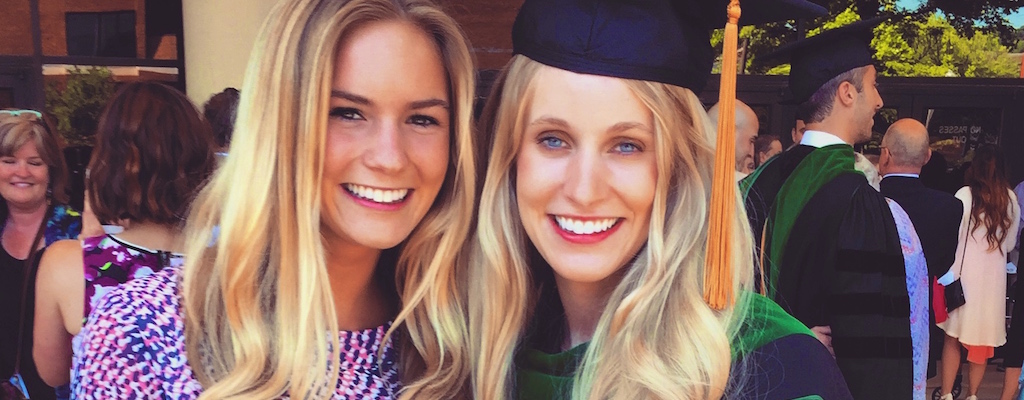T1D Diagnosis During Residency
In July 2016, I began my intern year of pediatric residency. I had just graduated from medical school and was so excited to finally take care of patients. I was also nervous. On my first day of work I quickly realized that I had a LOT to learn about what it means to be a doctor. It was stressful—I was suddenly responsible for the health and safety of the most precious tiny humans. I felt exhausted at the end of workdays, but it was a good feeling. Each day had its challenges, but I was excited to be learning and growing as a physician throughout it all.
About two months into intern year I started a particularly difficult rotation, hematology/oncology. I loved the rotation. The pathology was interesting. The patients were inspiring. They were also really sick, and I never stopped worrying about them. I started to feel more tired than usual, but I was stressed and working long hours. That was also the month I started carrying Gatorade around with me. I thought I was just thirsty from running around the hospital!
The next month I rotated through the NICU, another stressful rotation. I was waking up at 3:45 a.m. every morning to take care of tiny preterm babies on ventilators. Exhaustion was at an all-time high, and coffee wasn’t doing anything for me anymore. I was also chugging sodas, Gatorade and water every chance I had.
I was excited to move on to the pediatric ER the next month, a somewhat lighter rotation with better hours. Even though I didn’t have to get up so early I was still extremely sleepy all the time! Constant thirst and bathroom trips began to interfere with my efficiency at work. My eyes started to lose focus at times, but I blamed it on lack of sleep.
I remember telling my sisters that I thought I had diabetes half-jokingly. I thought if I really did have diabetes, it was likely type 2 due to my age (27), poor diet and lack of exercise. I resolved to work out more and to stop eating so many sweets. But I couldn’t exercise—at this point I was so weak I could barely walk up the stairs. I couldn’t stop eating. I was starving all the time! My mom kept commenting that I was too thin. To be honest I hadn’t noticed any weight loss because I had been wearing scrubs for three months straight.
I finally tried to make an appointment with a doctor after I started noticing a sickly sweet, fruity odor in my urine and on my breath. I didn’t have an established primary care provider at the time, so I wasn’t able to make an appointment for another three months. I was concerned that the fruity odor was from ketones, but I didn’t want to miss work and definitely didn’t want to go to the ER! When I finally had a few days off after a tough month of night float, I found a glucometer at home and checked my blood glucose. I wasn’t surprised to see that my blood glucose was >450. I finally decided to go to the ER; I was lucky I was not in diabetic ketoacidosis (DKA). My HbA1C at diagnosis was 16%. I had lost 15 pounds, and my BMI was <16. Blood tests showed that I had developed autoantibodies to my beta cells, confirming the diagnosis of type 1 diabetes (T1D).
After I was diagnosed I was happy and relieved to have an explanation for why I had been feeling so bad. I was so excited to know that I would finally feel better. It took a few weeks for the gravity of the diagnosis to sink in, a few weeks for me to realize how sick I had let myself become. I felt ashamed. How could I have not known that I had diabetes? I’m a doctor! But truthfully, I did know, I just didn’t want to believe it. And I didn’t want to take time off from work to do something about it. I was taking care of patients when my average blood glucose was >450, a dangerously high level. I put my patients and myself at risk because I didn’t want to call in sick to work!
My T1D diagnosis taught me that I have to take care of myself so that I can continue to take care of other people. Learning how to manage T1D during intern year is a challenge—I thought it might be easier for me because I’m a doctor (albeit, a new doctor), but it’s really not! I’ve definitely learned what it’s like to be a patient (frustrating at times). I’m interested in pursuing pediatric endocrinology now, which is exciting. Even on my most difficult diabetes days, reminding myself of these positive aspects makes things a little easier.





